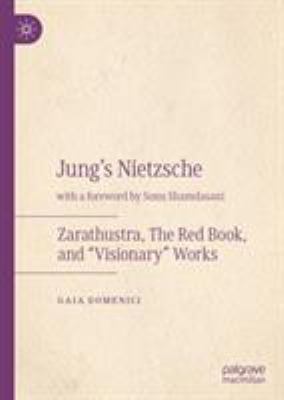Introduction 1. A Life-Long Confrontation 1.1. Jungs Educational Background 1.2 Nietzsches Presence In The Evolving Of Jungs Thinking 2. Jungs Psychological Understanding Of Nietzsche 2. 1. Jungs Seminar On Zarathustra : A Problematic Reading 2.2. The Red Book Liber Novus 2.3. Jungs Zarathustra Or Nietzsches Liber Novus ? 3. Misreading Or Revaluation? 3.1. The Unconscious As A Perspective 3.2. Structure Of The Work Chapter 1 Visionary Works And Liber Novus 1.1 Visionary Works 1.1.1 Jungs Definition And Characterisation 1.1.2 Return To Mythology 1.2 Visionary Authors 1.2.1 Theology 1.2.2 Basel and its Environment 1.2.3 Liber Novus as Jungs Visionary Experience Chapter 2 Nietzsche In Liber Novus 2.1 Nietzsche And The Style Of Liber Novus 2.1.1 Introductory Remarks 2.2 Similar Symbology: Nietzsches Hidden Presence 2.2.1 Desert, Lion and Transformation 2.2.2 Poisonous Serpents, Riddles, Dwarfs 2.2.3 Sun, Sunset And Eastern Wisdom 2.3 Nietzsches Explicit Presence: Overcoming Rationalism 2.3.1 Folly As The Other Side Of Life 2.3.2 Teaching, Mocking And Imitating: The Process Of Self-Becoming 2.3.3 Death And Rebirth Of God Chapter 3 Liber Novus In Nietzsche: Jungs Seminar On Zarathustra 3.1 Jungs Interpretation of Zarathustra 3.1.1 Introductory Remarks 3.2 Zarathustra As Nietzsches Failed Individuation 3.2.1 The Old Wise Man: Zarathustra And Philemon 3.2.2 Intoxication, Inflation, The Übermensch And The Übersinn 3.2.3 Isolated Suns, The Island Of The Dead And The Wheel of Creation 3.3 Animals 3.3.1 Serpent, Bird And Black Scarab 3.3.2 Frogs And Swamp 3.3.3 Doves, Feminine And Jungs Soul Conclusion 1. Introductory Remarks 2. The Death Of God And The Meaning Of Christianity 2.1 Philological Experiments And Empiricist Revelations 2.2 Nietzsche And The Issue Of Imitation: Socrates, Wagner, Christ 2.3 Jung And Christs Archetypal Nature 3. Self-Overcoming

